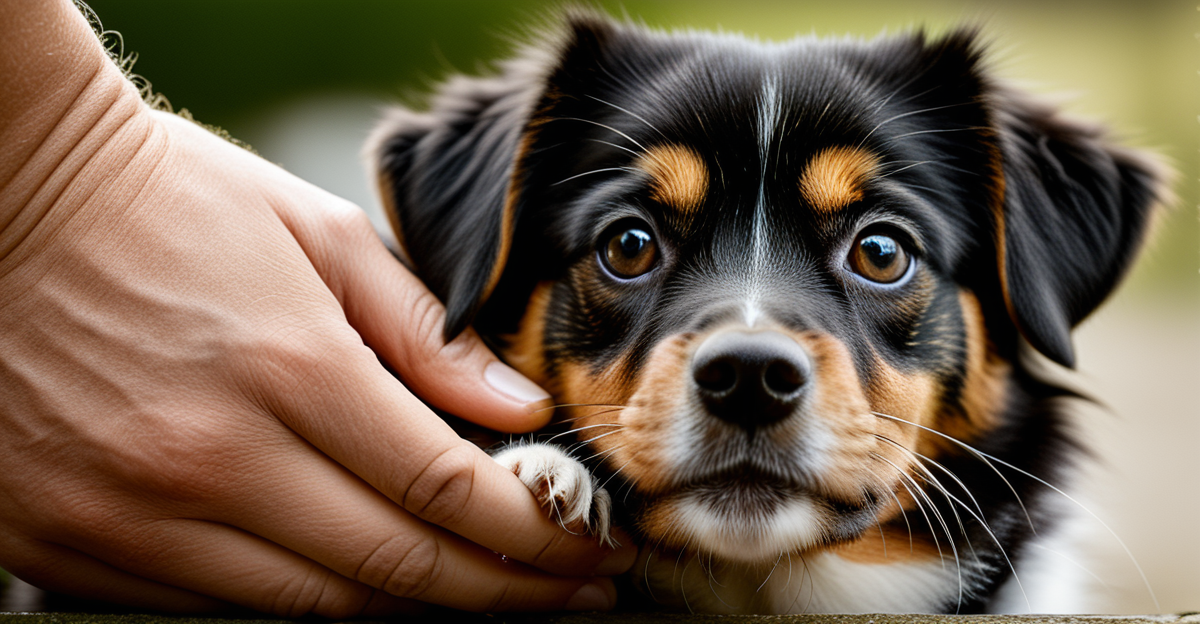Influences of Pets on Owners’ Daily Routines
Pets significantly reshape daily life with pets by necessitating structured routines. UK pet ownership habits often include early morning and evening activities such as feeding, walking, and grooming. These tasks introduce additional time commitments that many owners must integrate into their schedules. For example, dog owners frequently adjust their mornings to incorporate walks, which become non-negotiable parts of the day.
This increased structure can enhance daily discipline but may also reduce flexibility. Many UK pet owners report that their routines revolve heavily around their pets’ needs, impacting work-life balance. Morning walks provide physical activity, while evening feeding or play reinforces bonding but can limit spontaneity. However, this predictability can foster a comforting rhythm that benefits both owners and pets alike.
Also to discover : What Are the Benefits of Pet Ownership in the UK?
Importantly, the demands of pet care influence decisions on travel, social activities, and work hours. Understanding pet routine impacts helps owners anticipate lifestyle adjustments, ensuring they can maintain wellbeing while meeting their pets’ needs. This balance is critical to sustaining a healthy and harmonious living environment for all members of the household.
Influences of Pets on Owners’ Daily Routines
Pets significantly reshape daily life with pets, especially within the UK pet ownership habits context. Many owners find their morning and evening routines adjust to accommodate feeding times, walks, and grooming sessions. These tasks introduce more structure and predictability into an owner’s day, offering a rhythm that often benefits both human and animal.
In the same genre : What Are the Top UK Destinations for Traveling with Pets?
The impact on work-life balance can be profound. For instance, dog owners frequently schedule work breaks or early mornings to ensure their pets get adequate exercise, highlighting how pet routine impacts extend beyond leisure into professional life. This can enhance time management skills yet may reduce flexibility for unplanned activities.
Moreover, many UK pet owners report feeling more grounded, citing how consistent care routines create a framework that anchors their day. However, managing these responsibilities sometimes requires negotiation between personal obligations and pet needs, underlining a balance unique to pet-owning lifestyles. Understanding these influences can help prospective owners anticipate how pets integrate into day-to-day life.
Emotional and Mental Health Impacts of Pet Ownership
Pets serve as vital sources of emotional comfort for many UK owners, providing consistent support that can alleviate stress and anxiety. Studies show that emotional support animals in the UK notably reduce feelings of loneliness, a crucial factor contributing to improved mental wellness. For example, interactions with pets often trigger the release of oxytocin and reduce cortisol levels, directly benefiting owner well-being.
However, pet mental health benefits coexist with challenges. Owners sometimes experience pet-related anxiety, particularly concerning their pet’s health or behaviour, which can exacerbate stress. Grief after pet loss is another significant emotional hurdle, impacting mental health deeply.
Overall, pets not only enhance mood but also contribute to a structured routine that supports emotional stability. Appreciating the dual influence of emotional support animals UK-wide helps potential owners weigh the health benefits against the emotional responsibilities involved, offering a clear understanding of the complex relationship between pets and owner mental health.
Influences of Pets on Owners’ Daily Routines
UK pet ownership habits shape daily life with pets by embedding structured pet routine impacts into mornings and evenings. Feeding, walking, and grooming become essential activities that punctuate the day, often dictating when owners rise or unwind. For example, dog owners adhere to regular walking schedules that influence not only physical activity but also time availability.
These adjustments create greater routine predictability, offering benefits like enhanced time management. Yet, pet routine impacts can also reduce flexibility, requiring owners to carefully balance spontaneous plans with pet care demands. Many report that this structure positively influences work-life balance, as integrating pet needs fosters discipline and rhythm.
Ultimately, UK pet ownership habits prompt deliberate scheduling changes—increased early starts or allocated breaks—to accommodate pets. This impacts leisure activities and even professional commitments. Understanding these shifts helps owners navigate the complexities of daily life with pets, fostering harmony between personal goals and animal care. Recognising and planning for these pet routine impacts is key to a successful and fulfilling pet-owning lifestyle.
Influences of Pets on Owners’ Daily Routines
UK pet ownership habits distinctly mould daily life with pets, particularly through morning and evening activities like feeding, walking, and grooming. These routines establish a structured framework that shapes owners’ entire day. For instance, regular walks necessitate timely departures, prompting owners to reorganise mornings and evenings to fit these fixed commitments. This increased structure often enhances discipline but can also limit spontaneity.
The pet routine impacts extend into work-life balance. Many UK owners report scheduling work breaks or adjusting work hours to ensure their pets’ needs are met, demonstrating how pet care integrates with professional responsibilities. Such adjustments can improve time management but reduce flexibility, especially when unexpected changes arise.
Balancing these demands requires negotiation between personal life and pet care priorities. Understanding these routine influences allows owners to better anticipate and adapt to lifestyle modifications, fostering a harmonious coexistence with their pets while maintaining overall wellbeing.
Influences of Pets on Owners’ Daily Routines
UK pet ownership habits create notable pet routine impacts that extend throughout the day, redefining both morning and evening rituals. For many owners, daily life with pets involves early rising to accommodate feeding and walking schedules. These consistent routines introduce a structured framework where tasks like grooming and exercise are non-negotiable, turning pet care into central daily priorities.
But how exactly do these changes affect flexibility? The answer lies in balancing pet needs with personal and professional obligations. While planned feeding and walking enhance time management, they often constrain spontaneity. Owners frequently report modifying work breaks or social plans to conform to these essential care windows. For instance, dog walking habits might dictate when they leave the house or return, thus influencing broader life choices.
Overall, pet routine impacts in the UK encourage owners to cultivate disciplined habits, though this demands intentional negotiation between lifestyle preferences and pet welfare. Recognising these influences helps maintain harmony, ensuring owners can navigate their responsibilities without undue stress while enjoying the tangible benefits of companionship.
Influences of Pets on Owners’ Daily Routines
UK pet ownership habits distinctly reshape daily life with pets, primarily through the introduction of structured tasks like feeding, walking, and grooming. These routines usually anchor mornings and evenings, necessitating owners to adjust their schedules to accommodate their pets’ needs. For example, regular walking times can prompt earlier wake-up calls or later evening commitments.
The pet routine impacts extend beyond simple scheduling. Many owners report a tangible improvement in time management due to these fixed routines, yet this often comes with reduced flexibility for spontaneous activities. Navigating this balance is crucial, as prioritising pets may require altering work hours or leisure plans.
Moreover, UK pet owners frequently integrate breaks into their workdays to attend to pet care, blending professional commitments with animal welfare. This dynamic illustrates how pet care responsibilities are woven into daily life, influencing both personal and professional realms. Understanding these UK pet ownership habits clarifies why structured routines are integral to managing the demands and joys of living with pets.
Influences of Pets on Owners’ Daily Routines
Incorporating pets into daily life with pets profoundly restructures mornings and evenings, centralising feeding, walking, and grooming in ways that reflect typical UK pet ownership habits. These routines often start early, with many pet owners initiating their day around their animal’s needs. Such pet routine impacts create a reliable framework that both organizes time and demands consistency.
The structured nature of these activities enhances discipline but narrows flexibility. Many owners report adjusting work hours or incorporating breaks for walks, which illustrates how pet routines intersect with professional lives. These changes can bolster time management but might limit spontaneous social or leisure plans.
Understanding this balance is vital. By anticipating how pet routine impacts influence daily schedules, owners can better align personal and professional obligations, maintaining wellbeing while meeting pet care demands. This synergy between human and animal needs highlights the profound effects of UK pet ownership habits on lifestyle rhythms.
Influences of Pets on Owners’ Daily Routines
UK pet ownership habits distinctly shape daily life with pets by embedding structured activities into both morning and evening schedules. Feeding, walking, and grooming typically dictate time slots that owners must respect, imposing a new rhythm. For example, many dog owners wake earlier to ensure regular walks, illustrating clear pet routine impacts on their day-starting habits.
This required structure often leads to improved time management skills; owners learn to plan precisely, balancing pet needs alongside personal and professional commitments. However, this increased discipline can reduce flexibility, making spontaneity challenging. Work-life balance adjustments are common, with many UK owners rearranging work breaks or social engagements to integrate pet care seamlessly.
Understanding these dynamics helps prospective and current owners prepare for the tangible shifts brought by pet ownership. The integration of feeding and exercise into daily routines not only anchors the day but also highlights how deeply UK pet ownership habits influence lifestyle choices and priorities.





